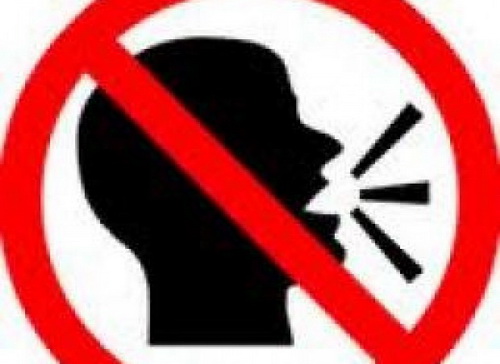
By Qi Zhi (启之)
Issue 610, Mar 11, 2013
Observer, page 52
Translated by Zhang Xiaoxi
Original article: [Chinese]
I'm not sure what kind of impact politically sensitive terms have on a society, but I do know that they can really complicate the life of ordinary people.
For example, back in the era when China was engaged in class struggle, people would never dare use the word "farmer" (农民), because landlords - considered a class enemy at the time - were also in a sense farmers. So if a student living in a farmer's home was busting for a pee at night but didn't know where the light switch was, he could only say: "poor peasant turn on the light" (贫下中农开灯) and if the student happened to be staying in a landlord's house, he had no choice but to wet the bed.
I was once chatting with a friend from Taiwan when he asked me, "Do you know which bus line doesn't operate in Taiwan?" I couldn't figure it out. Then he delivered the punchline, "It's Line 8 (8路),because Chiang Kai-shek hated the Eighth Route Army (八路军)of the Communist Party."
In the 1960s, Wang Dingjun (王鼎钧) worked as a senior editor in China Television of Taiwan. One of his jobs was to read and edit subtitles. If the script of a television show included the phrase "these days" (这年头), he would delete it without hesitation.
For instance, if a character in a soap opera were to say something like "Public morality is not what it used to be these days" or "People have no sense of right and wrong these days," Wang would pick up his red pen and strike out the offending phrase.
Wang explained that "these days" referred to the current situation under the Kuomintang and if someone were to interpret the reference as being critical of the authorities, he might have lost his job.
Of course, the mainland also has it's share of taboo words and phrases.
About forty years ago people would never say that they had "bought" (买) a picture of Chairman Mao.
Most people used the verb "invite" (请), to describe the process of obtaining an image of the great helmsman. A similar phrase was used in rural areas to refer to the posting of images of various gods at certain festivals.
Similarly, in the 1980s, when I was discussing with workmates the removal of a Chairman Mao statue from the entrance to a railway station, I was quickly told that I should not use the words "destroyed" (拆) to describe what had happened, Chairman Mao had simply been "sent away" (送走) not "demolished."
During the Culture Revolution people were often sent to labor camps for simply saying the wrong thing.
Take the example of a man we'll call Lao Dai. Many Chinese people believe that it's good luck to eat noodles on your birthday. On Dec 26, 1968, Lao Dai got up early to buy some noodles as a birthday treat for his niece. However, where ever he went, all the stores were sold out. Lao Dai soon realized that it also happened to be Chairman Mao's birthday and people everywhere were buying noodles to celebrate. Finally, after a long search he managed to track down some.
After getting home, he complained to his neighbors: "Chinese people are so god damn troublesome? Those that normally wouldn't be interested in eating noodles, today they all want to follow the fashion and race to buy some noodles whereever they can. Now noodles are more difficult to find than gold! What is this god damn world coming to!"
Lao Dai's words were interpreted as an attack on Chairman Mao and Socialism and he was soon sent to a labor camp.
